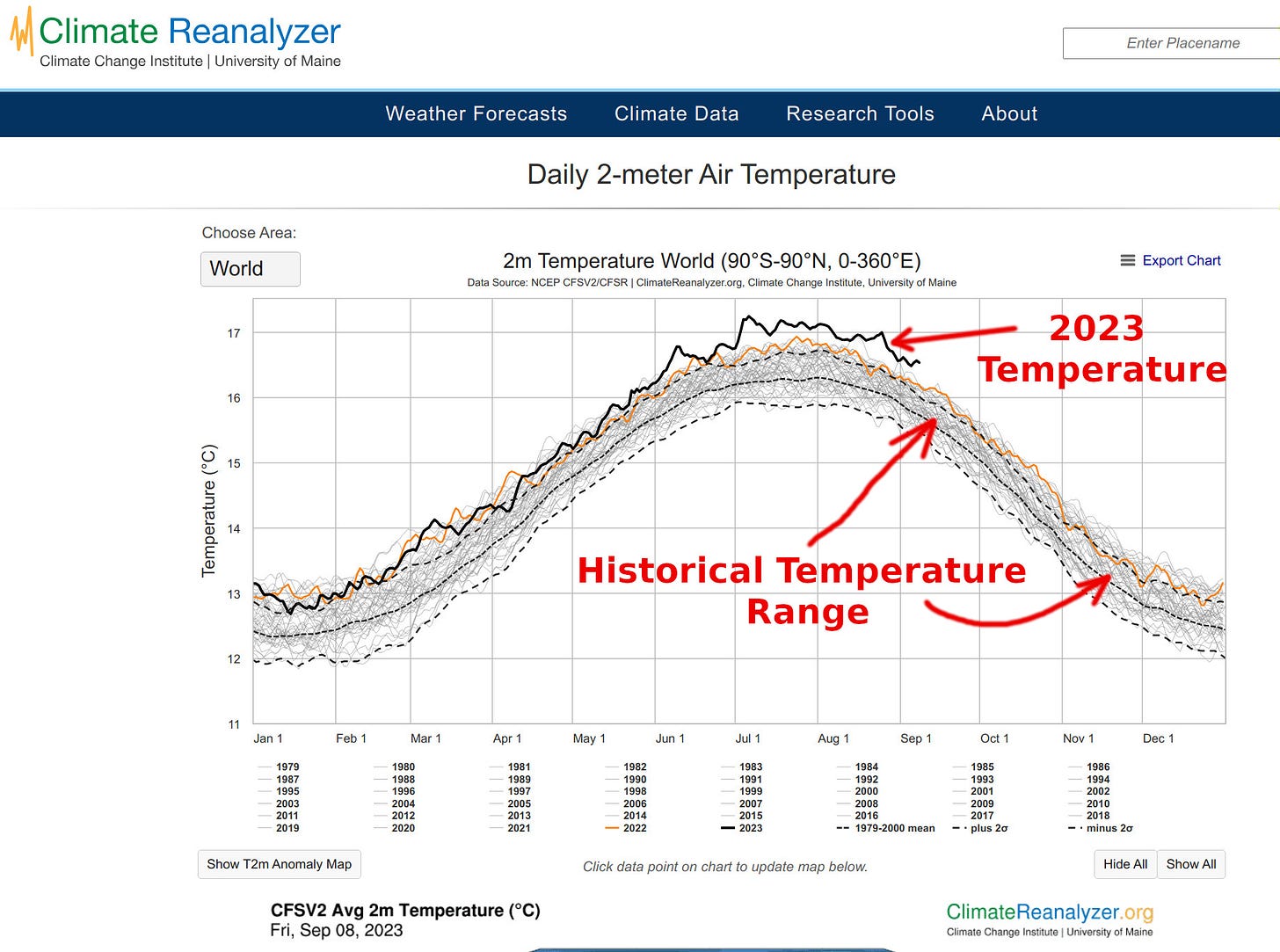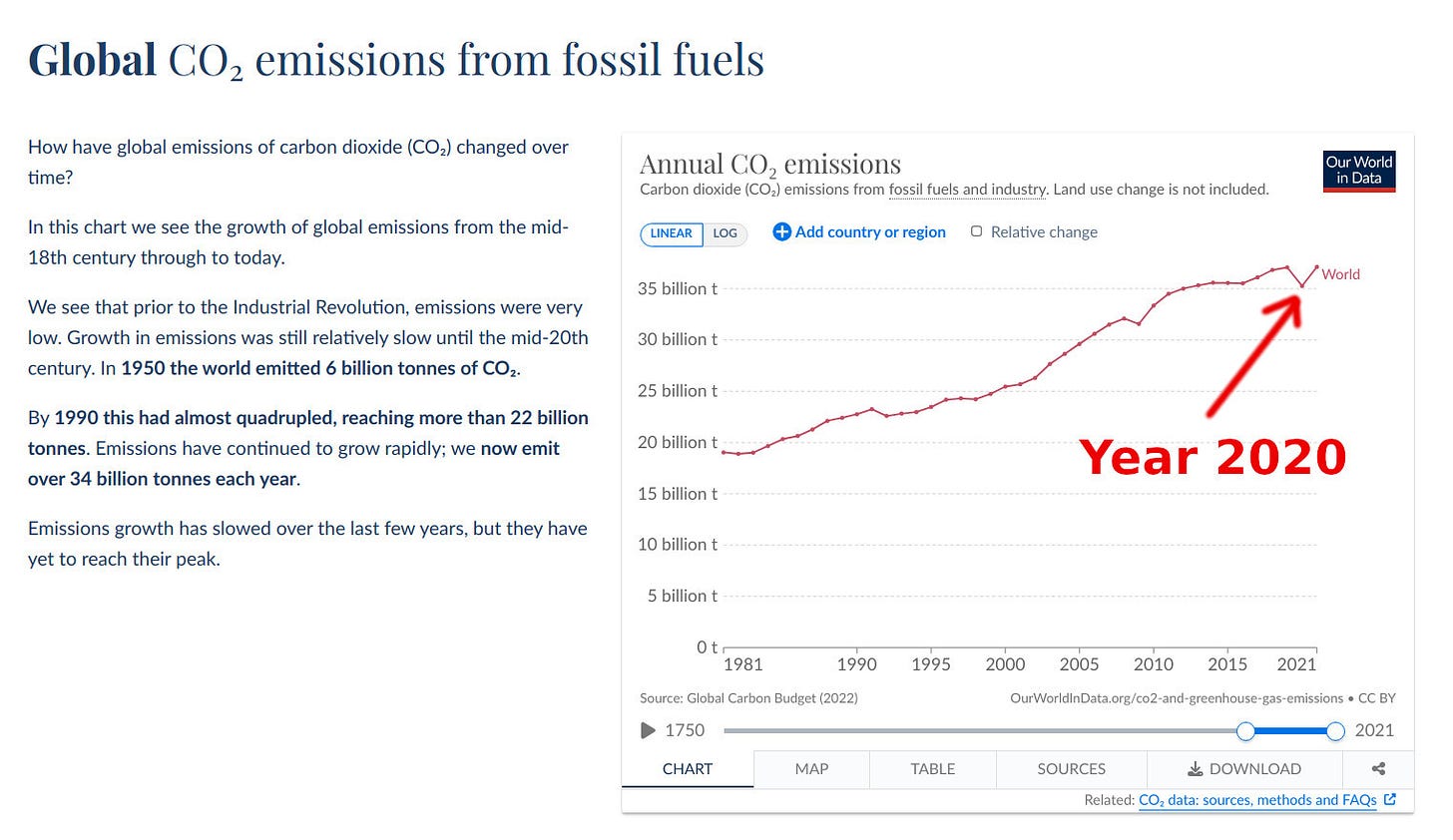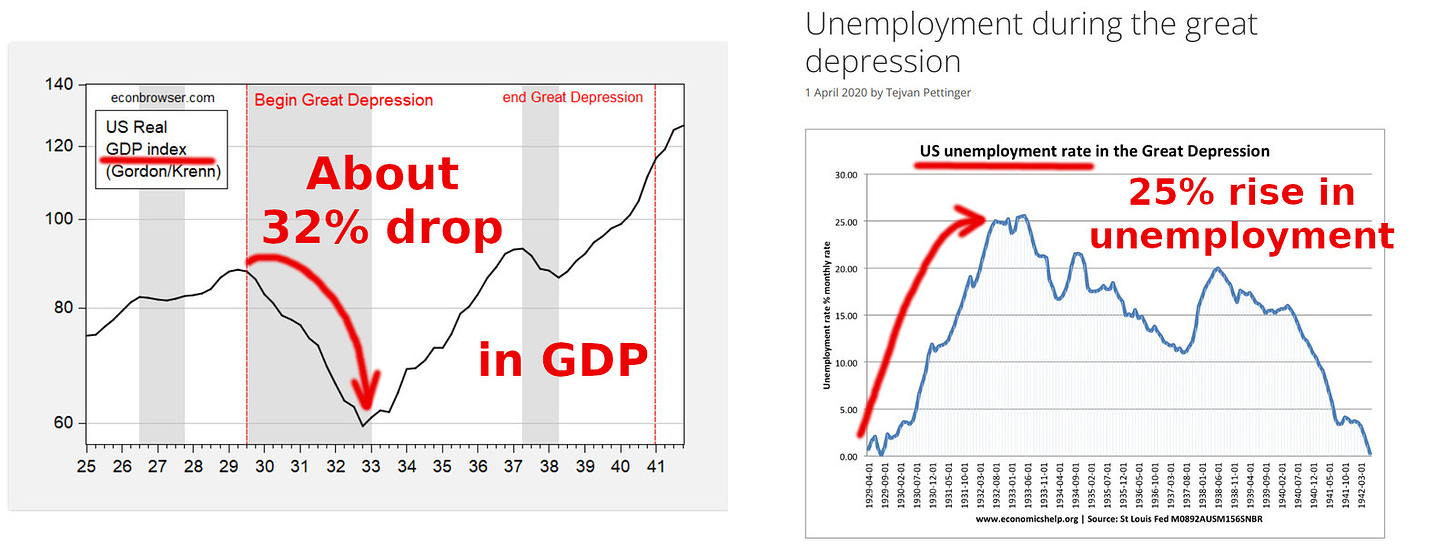 By Igor Chudov
By Igor Chudov
SUMMARY: This post will attempt to understand the thinking and motivations of the World Economic Forum and its allies. They believe in upcoming catastrophic changes in Earth’s climate. According to their data, only decisive rapid action can prevent a catastrophic discontinuous climate change.
Within their frame of reference, the only sure way to avert it is to engineer an economic depression, which could reduce CO2 emissions by up to 70% within a year. Doing so is surprisingly easy if the WEF controls several large central banks, which is indeed the case.
Will the WEF engineer a global Depression?
Dear Reader: I will explain my understanding of what drives the World Economic Forum, other “global stakeholders,” and their thinking.
This attempt to understand is not an endorsement or an attempt to justify them. I am intentionally NOT making a moral or scientific judgment here. My readers are smart enough to think and make their conclusions about climate. I hope my post will appeal to both climate change doubters and climate change believers. Both are welcome on this substack.
I am not trying to convince you that climate change is real (or is a hoax). I am trying to understand what drives people who lead the world’s decision-making – and, in this case, those who think they are our saviors and are rescuing our planet from climate change.
I am a climate skeptic who retains an open mind – but this opinion of mine has no importance for the rest of this article.
The World is On The Precipice, They Say
According to the WEF, the ongoing warming of our planet is about to unleash an irreversible series of additional climate impulses, such as
- Release of vast stores of frozen (trapped in permafrost) and compressed methane (underwater clathrate gun), which would warm the planet by a few additional degrees
- Burning of peat bogs that dry out would release more CO2
- Change in ocean currents can trigger the so-called “Dansgaard-Oeschger event,” flipping the temperatures of the Northern Hemisphere up by several degrees
Activist Post is Google-Free — We Need Your Support
Contribute Just $1 Per Month at Patreon or SubscribeStar
Indeed, according to the WEF climate experts, something is happening to the world in 2023 that indicates a “flipping” of the temperature this year towards a much higher temperature regime. As the chart below shows, the average surface temperature of 2023 is the highest and lies way above the historical range of temperatures seen:

If you read this and have a strong opinion about the above being true or false, be assured that your opinion is important to you and me, and you can share it in the comments – it will NOT be censored!
However, even more importantly than our opinions, the WEF believes that the above constitutes an impending catastrophe.

Nothing Works. What Else Can They Do?
The efforts to “limit emissions of CO2” made many people rich. What they have not done is reduce emissions of CO2. This chart from Our World in Data shows CO2 emissions increasing every year, except for the small dip during the year 2020, due to the COVID lockdowns:

Without getting bogged down in the details of “climate science,” let me reiterate two fundamental beliefs of the global stakeholders gathering around the WEF:
- Climate change is accelerating and is reaching a tipping point
- CO2 emissions, causing global warming, are not declining
Again, if you are skeptical about “climate science,” be my guest! But the above is what the WEF believes, and therefore, it is material to the choices that they could make.
Only One Way to Stop Emissions Quickly
Please note that wealthy nations produce the most CO2 emissions. Professor Sarah Harper, a WEF adviser, explains in The Telegraph’s article celebrating population collapse in the UK:
Research has found that wealthy nations tend to have much larger carbon footprints than poorer countries, as rich people can afford to buy more goods, travel more and do other activities that generate emissions.
Carbon emissions from high-income countries were 29 times larger than low-income countries on a per capita basis in 2020, World Bank figures show.
What could the WEF, along with a few leading countries, do to quickly (within a year or so) reduce CO2 emissions? Aside from the conspiratorial exotics, there is one practical policy action that can be done within a year and depress major economies’ CO2 production:
They could use several central banks to engineer an economic depression similar to the Great Depression.
The Great Depression, which saw banks fail and money supply suddenly contract, reduced GDP by 32% and increased unemployment by 25%.

A Depression Will Halve CO2 Emissions
Nobody can guess how far can a hypothetical next economic depression go. However, a recession will bring about reductions in energy use. The economy is energy. Most economic activity involves the consumption of energy and burning fuel. For example:
- Construction uses energy and emits CO2 to make concrete
- Driving to work uses fuel. Internal combustion cars burn hydrocarbons. Electric cars use electricity produced with hydrocarbons and paradoxically increase our carbon footprint.
- All manufacturing and mining use energy.
- Heating or cooling large, expensive homes and office buildings uses energy.
Therefore, a reduction in consumption and business activities means a reduction in energy use and CO2 emissions.
A part of the energy is produced using hydrocarbons (mostly coal and natural gas and fuel), and a part is produced using carbon-neutral technology such as nuclear and solar panels.
In the United States, about 39% of energy is produced using zero-carbon sources:
Continue reading at Igor’s Substack and subscribe
Become a Patron!
Or support us at SubscribeStar
Donate cryptocurrency HERE
Subscribe to Activist Post for truth, peace, and freedom news. Follow us on SoMee, Telegram, HIVE, Flote, Minds, MeWe, Twitter, Gab, and What Really Happened.
Provide, Protect and Profit from what’s coming! Get a free issue of Counter Markets today.

Be the first to comment on "Will “Climate Stakeholders” Engineer an Economic Depression to Save the Planet From Global Warming?"